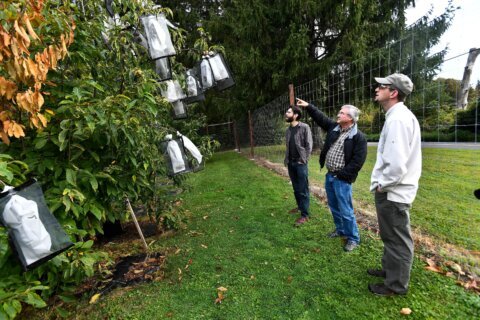In 1954, an iconic poem was written by Dorothy Law Nolte. A family counselor and educator, she was an early voice in the changing patterns of parenting that would evolve over the latter half of the 20th century. Her work, “Children Live What They Learn,” helped jump-start a more moderate set of tenets that diverged from the spare-the-rod-spoil-the-child philosophy. This work has been quoted, recited and invoked repeatedly over the years since it was published.
In children, growth and health is an intense focus for caregivers of all kinds, including families and physicians. In addition, there’s a psychosocial development that must be nurtured and monitored. It’s imperative so that kids can integrate into the global community and have long-term success for their future. In our current society, a great many tensions exist. To navigate such hurdles, children will emulate the role models around them. In other words, they will live what they learn.
If children live with criticism, they learn to condemn. How often do we hear rhetoric on every talk show, every awards show, every newscast? When we constantly spew the negative, we crowd any chance for not only the positive but any balanced conversation. Are we then surprised when our young people judge quickly? Behaviors follow that we condemn, such as body shaming or hazing. Yet we seem surprised when children act that way.
[Read: What to Do When Your Friends’ Kids Drop Your Child From Their Group.]
If children live with hostility, they learn to fight. Witnessing social violence, domestic violence or emotional anger will lead to inappropriate ability to deal with conflict. Road rage and retaliatory violence, such as shootings and bullying, will ensue. The pain of these types of interactions continues to seep through the ranks, leading to more and more episodes of dysfunction.
If children live with encouragement they learn confidence. The future generation needs to speak up to deter incivility in society. The days of passive bystanders need to be pushed away so that cruelty, unkindness, and poor personal comportment are called out and the demand for better human interactions is shouted from the rooftops. Confidence is a critical element to finding ones voice in society.
If children live with tolerance they learn to be patient. In a world where information flows even faster than the mind can think, patience is a waning art. The idea that people come from different points of view is a key to finding our civil society once again. Understanding the views of all aids children in developing an ever broadening lens on the world, allowing them to evolve and actually listen others as well. If the world is to ever learn moderation, this practice is crucial.
If children live with praise, they learn to appreciate. As a generation, millennials are likely to have been praised frequently during their lives. Questions, however, remain. Does that praise equate to seeing the accomplishments of others and celebrating them as one’s own? To learn to not take things for granted and to be humble must go hand in hand. Humility seems to be sadly lacking in many sectors of our society, particularly in our political arena.
[Read: Help for the Shy and Lonely Child.]
If children live with acceptance, they learn to love. Unconditional acceptance is a concept that’s tantalizing but very rarely realized. To be consistently civil, there must be love abounding — love for self, others and country. How often do children hear lyrics to their favorite songs that are about misery, self-loathing or condemnation of others? How often do they witness family strife about things they cannot control? Certainly race relations in this country belie the limitations to acceptance to date.
If children live with honesty, they learn truthfulness. Every day in the news cycle, there are more and more stories of subterfuge — if not outright untrue accusations. Once an accusation is floated, the truth becomes secondary. Lives and hearts are forever changed and strained.
If children live with security, they learn to have faith in themselves and others. There has been a change in how safe our children feel — and that’s true for their caregivers, as well. School shootings and post-9/11 anxieties have changed everything. To feel safe within those confines needs to be rooted in self-assuredness and confidence in our ability to control those things we can.
If children live with friendliness, they learn the world is a nice place in which to live. Reaching out is the most natural activity for children. As adults,not so much. Maybe it’s secondary to the busy lives people lead. Maybe it’s shyness. The simple acts of kindness can pave the way for relationships which lead to all other desired behaviors. Making sure children have models for friendliness as adults is critical to forming the network of a successful society.
[See: 10 Ways to Raise a Giving Child.]
In an age where we have increasing numbers of children who are anxious, depressed, addicted and suicidal, wouldn’t it be nice if they learned that they’re promise of an ever improving future and that, indeed, the world is a nice place in which to live? Children live what they learn. Society, it’s time to stand up and be the teacher.
More from U.S. News
6 Ways to Help Kids Combat Materialism
The 5 Latest Poison Control Threats Kids Face
10 of the Biggest Health Threats Facing Your Kids This School Year
Children Live What They Learn. It’s Time for Us to Be Good Teachers. originally appeared on usnews.com







